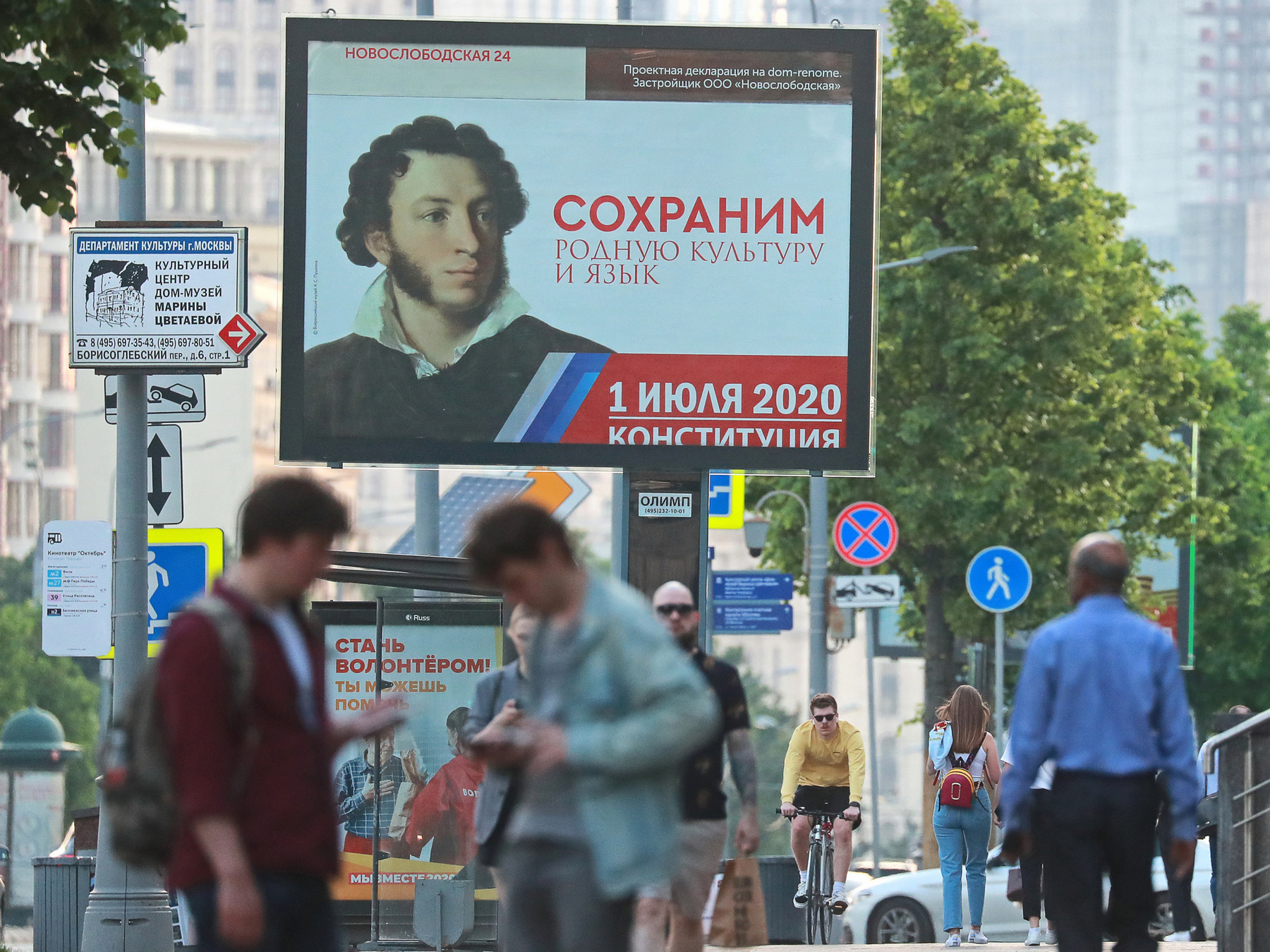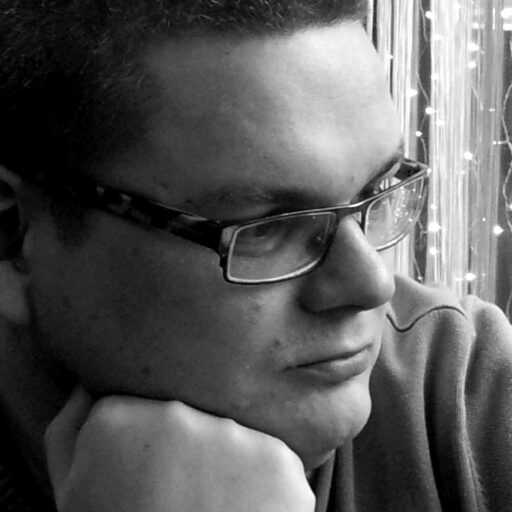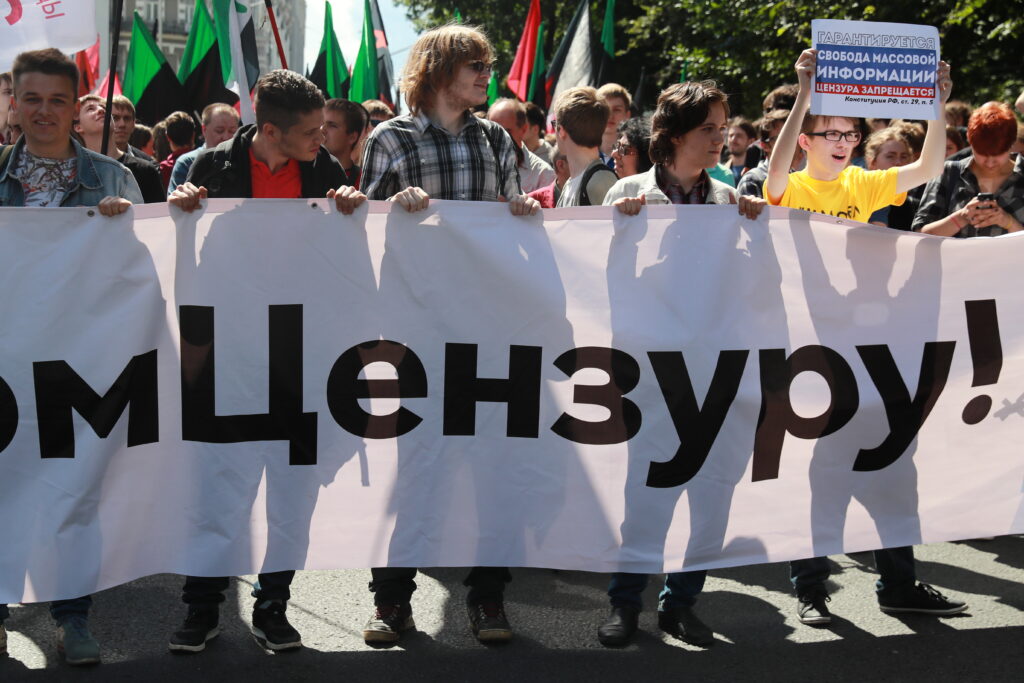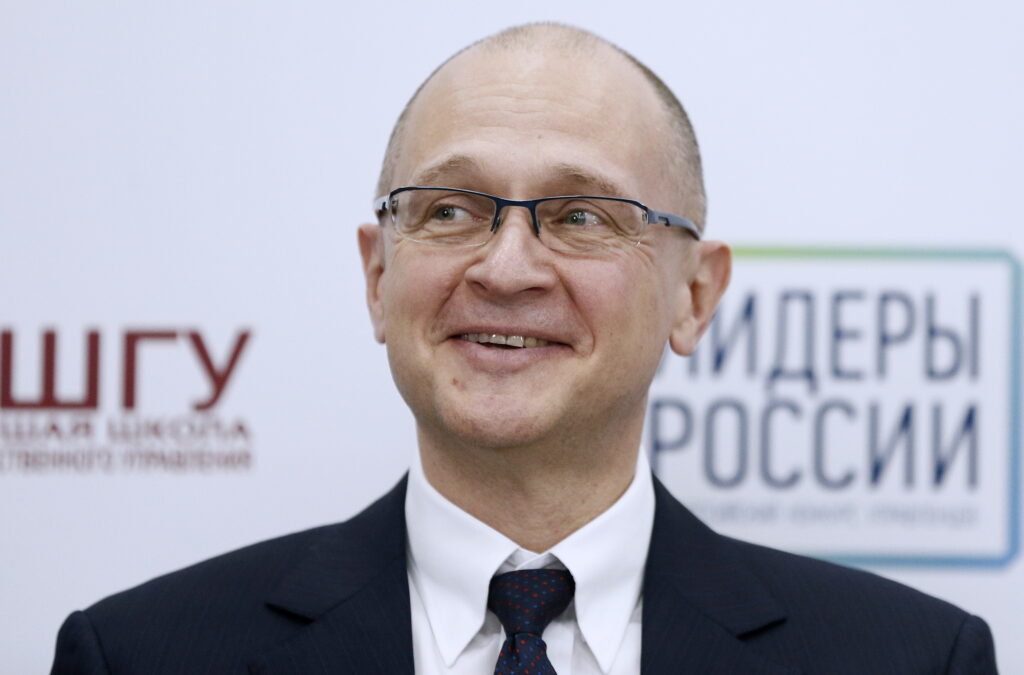Once the Kremlin decided how to solve the problem of power transition after the end of Putin’s fourth presidential term — right after the most primitive option was eventually chosen — an advertising campaign appeared. Its purpose was unsurprising: support amendments to the current Russian Constitution.
Putin had announced his intention to amend the Constitution in his Message to the Federal Assembly in January. It was no secret that the whole enterprise was to keep power in his own hands. However, it was not clear from the Message how exactly Putin was going to do it. As political scientists rushed to conceive various scenarios, a working group was formed almost immediately to prepare amendments. Members of the group included Duma deputies, several lawyers, cultural figures loyal to the regime, and even one Cossack ataman. Political scientists kept arguing. Members of the working group kept generating ideas. A few weeks later, it turned out that all this was pointless. At one of the State Duma sessions, Valentina Tereshkova, the world’s first female cosmonaut, came to the microphone. Making references to appeals from citizens, she suggested simply to “correct” the Constitution so that Vladimir Putin could have the opportunity to take part in the presidential elections two more times (in 2024 and 2030). On the same day, the President visited the Parliament and happened to endorse the idea. From then onwards, television started broadcasting clips explaining the importance of the amendments. The Duma hastily approved the most important amendment as well as a whole bunch of others, presented as the output of the working group’s efforts. Among them were amendments on the “inadmissibility of belittling the feat of ancestors”, on supporting volunteers, on the official status of the Russian language, on mandatory indexation of retirement pensions, on responsible attitudes towards animals, on marriage as a union of a man and a woman, etc.
The voting was set for 22 April. Putin appeared confident about his success, as the campaign was rather modest. However, the very first videos that appeared on public TV channels contained all the main strategies that were later used to promote the amendments.
The irresistible trio
Several videos of the same type were aired. All were minimal: they featured a celebrity talking about a problem that he found worrying. The celebrity said he would vote in favour of the amendments because the amendments would solve this problem.
For some reason, three people were running on air more often than others. Oleg Gazmanov, instance, a pop singer popular in the 1990s. Or Sergey Bezrukov, one of the most famous actors in Russia. Then there was Denis Matsuev, a virtuoso pianist whose fame stretches beyond Russia. Apparently, the authors of the campaign felt these three men appealed to all significant target audiences at once. The mature Gazmanov would attract the older generation; the languid Bezrukov would appeal to everyone but especially to single women; Matsuev, meanwhile, would speak to the intelligentsia, not always loyal to the regime.
Gazmanov talked about the past and how his ancestors had fought on the fronts of the Great Patriotic War. He said he was concerned about “the graves of our heroes.” The amendments would prevent anyone from desecrating their graves. Bezrukov whispered something about his love for the Russian language. But language was the last thing anyone watching would be paying attention to. Instead, who could ignore his passionate whisper, languishing eyes? The word “love” just about crept through. Matsuev reminded the audience about the greatness of Russian classical culture, well-known all over the world.
What all the first-wave promotional videos had in common (incidentally, all others were shot in very much the same style) was that they lacked any substance whatsover. It is unclear from Gazmanov’s story who exactly is threatening the ancestors’ graves. Why they can they not be protected without rewriting the Constitution? How are parliamentary amendments going to deter vandalism? The only thing clear from Bezrukov’s whisper is that he is very eager to please the audience. No rational arguments among those sultry tones. What is left is just a feeling: amendments are a very good thing; they are right and necessary. Tell, not show.
However, it is more important to look at what the videos hush up rather than what they present to the viewers. The reels remain silent about the amendment allowing Putin to stay in power for the next 16 years. Indeed, the key message of the entire campaign lacks any substance. It is only about positive vibes, turning the “zeroing out” of Putin’s terms into a figure of silence.
The campaign slowly gained momentum. For instance, a special free issue of the “Komsomolskaya Pravda” daily was released. Incidentally, it is not a government newspaper, although highly loyal to the authorities. What those readers would discover, as they leafed through cover to cover, was an issue devoted entirely to the constitutional amendments. However, these sorts of issues became suddenly even less interesting. The Covid-19 pandemic arrived, upending Putin’s plans.
Virus versus the President
Until the last moment, Putin hoped to still hold a vote for the amendments on 22 April. Then, there would be a military parade on 9 May to celebrate the 75th anniversary of Victory in WWII. The threat of a pandemic was duly ignored. Common guests of TV propaganda shows mocked European panic-mongers who introduced lockdowns. However, the mayor of Moscow Sergey Sobyanin eventually spoiled everything. At first, at one of the meetings with Putin, he criticised the heads of the Russian regions quite severely (hardly a customary thing among Russian officials). He warned how they were not sufficiently active in preparing for the pandemic. Then he organised Putin’s visit to Kommunarka, a specialised hospital where COVID-19 patients were already being treated. Putin was impressed. He left Moscow for one of his countryside residences, addressing the nation a few days later. He declared “non-working weeks”. And, he added, the vote was postponed until the epidemiological situation has improved. All these events happened in late March.
However, the ghost of Gazmanov, with his love for graves, and Bezrukov, with his love for himself, lingered on. Neither disappeared from TV. Moreover, there were signs that the campaign was moving online. Some authors of popular Telegram channels tried to seem neutral. Except for sporadic and sudden outbursts to argue that Putin would remain in power anyway, and that this could not be avoided. They said that the amendment on the indexation of pensions, for example, was very important for the older generation — so t it had to be supported.
In public goups controlled by regional and city administrations, as well as by the United Russia party, one could watch videos with fairly straightforward content, presented as spontaneous “folk art” from the supporters of the amendments. Against the background of photos of doctors wearing protective suits, those videos claimed, for example, that once the amendments have been adopted, Russia would be able to “defeat any virus”. Clearly, the idea to keep the adverts fully non-rational was continued in spirit.
The most surprising things happened, though, in the streets of big Russian cities. The streets were empty. Very few pedestrians and cars were around. But nearly all advertising spaces were filled with appeals to support the amendments. The great Russian poet Alexander Pushkin glanced from the walls, calling people to protect the Russian language. A little girl — dressed, charmingly, in a military uniform — asked to preserve the memory of forebears. A few smiling people of different sexes and all ages asked for the traditional family to be … saved. “This is our choice!” read the slogan from billboards. The spectacle was surreal: empty streets, occasional passers-by, rare taxis, and posters about the importance of the upcoming vote everywhere. A show without spectators, art for art’s sake.
Only an observer with a poor understanding of Russian realities, however, could have arrived at this conclusion. In contrast, someone familiar with those realities would get it at once. Advertising budgets had already been allocated. So, they had to be used. A virus might cancel the voting. But no virus could prevent officials from spending public money.
A hot phase
Russia went under lockdown for two months. The President delegated the responsibility for fighting the virus to the governors. Having mastered video communication, he began to make a variety of speeches, either with or without good reason. The further it went on, the stranger his speeches became. On one occasion, he mentioned Polovtsy and Pechenegs — nomadic peoples that Russians fought against in the early Middle Ages. On others, he reproached the ancient Spartans for immorality. With vigour, he condemned the Spartan custom of throwing weak and ugly children off a cliff; he promised that Russia would never go that far.
Meanwhile, Russia was beginning to seethe, bit by bit: police measures to maintain the lockdown made people angry. People lost their jobs, but the government refrained from offering direct financial help. The mayor of Moscow directly stated: “If we help everyone, the budget will burst.” All this, of course, did not help to boost the popularity ratings of the authorities.
On 9 May, the Victory Day, the President briefly returned to the capital from his modest countryside abode. A parade, small yet personal, was held for him. Infantrymen and cavalrymen of the Kremlin Regiment were there. Military planes flew over Moscow. Somehow, this did not seem to entertain the leader. He started pressurising his governors, demanding victory over the virus.
The whole thing is not only about dacha boredom: a continued lockdown would have made the situation in the country highly nerve-wracking, putting the outcome of his fateful vote in doubt. Soon, official statistics of morbidity met the President’s expectations: Russians began to get less ill and die less. New dates were set: 24 June for the parade; 1 July for the voting. By early June, even the most stubborn governors had eased the restrictive measures; officials anonymously told journalists that this was to give people a break from the lockdown before voting. The hot phase of the advertising campaign began.
It started with scandals. A commercial aired on Russia Today, with various famous people reciting the preamble to the Constitution. This turned out to be rather awkward: written in 1993, the preamble still remains unchanged. But, what was appropriate in the past sounds strange now as an advertisement for constitutional amendments. The people featured in the video promised, for example, to “revive the sovereign statehood of the Russian Federation.” But, hang on: what prevented Putin from reviving it in during the 20 years of uncontrolled rule? Was it the Constitution?
Designer Artemiy Lebedev, who starred in the video, immediately said that he had not been warned that the video would be used for advertising purposes. Opposition leader Alexei Navalny called the participants “Putin’s sycophants,” apparently without watching the video to the end: half-way through the video, a combatant of the Great Patriotic War flashes for a second. Now, another criminal case has been instituted against Navalny, this time for insulting a veteran.
Media structures controlled by “Putin’s chef” Evgeny Prigozhin prepared a small feature video about a dark future, a world where the amendments are not adopted. The video showed a gay couple coming to an orphanage. They adopt a boy. The staff of the institution, although outraged, were powerless to prevent it. The video was ridiculed. It ended up banned by YouTube on the grounds of inciting hatred.
Then came the flood
The closer the voting approaches, the larger the number of voting ads appearing on TV, in newspapers and online. Mailboxes of city residents are stuffed with leaflets urging them to come to the polls. The e-government portal Gosuslugi sends out e-mail reminders on the importance of voting. On TV, not only Gazmanov and Bezrukov, but also ordinary Russians explain why they personally support the amendments: “I love animals a lot, and the Constitution is going to have an article on the responsible attitude towards animals.”
Popular bloggers have been promised to earn a million roubles each for just adding a few words in support of the vote. (However, some summon the courage to refuse, and even talk about it). Not only top stars are involved. Anyone who agreed to be recruited is welcome — second-rate rappers, actors from comedy shows, etc. All system politicians are campaigning for participation in the voting (but not necessarily for the amendments – we will return to this important point later). Vyacheslav Volodin, the speaker of the State Duma, said that the calls to refrain from voting were “anti-national”.
When entering residential buildings in Moscow, one can spot special wobblers on door handles, reminding people of the vote. They look like the “do not disturb” signs in hotels. Even doctors in hospitals treating COVID-19 patients must campaign for the amendments. Family members are asked to bring patients’ passports along; voting in hospitals will also be organised.
By now, ads for the voting have flooded Russian cities. At the same time, even the VCIOM, a surveying agency which is quite loyal to the authorities, has recorded a high degree of distrust in the forthcoming vote: approximately a half of the Russians expect either large-scale fraud or local falsifications. Political scientist Kirill Rogov has noted that FOM, another polling agency which is loyal to the Kremlin, has not published any survey results related to the voting, although it almost certainly carries such surveys out. Apparently, there is nothing to brag about in the results.
Positive social surveys in Russia are also a form of political advertising. The lack of positive data from pro-government sociologists tells all.
Boosting turnout
How did the government spend billions of roubles then? Officially, they spent about a billion “on providing information.” This is not even a fraction: in Russia, the sphere of political advertising is non-transparent. Many players involved in the process prefer cash and grey zones.
The main purpose is to boost the turnout. The authorities fear empty polling stations. The Communist Party of the Russian Federation (which, of course, is a systemic party that operates only within the limits permitted by the Kremlin) is allowed to campaign against the amendments, and quite harshly so. However, the goal is to drag supporters of the Communists to the polling stations to say their firm “no”. The same idea is conveyed to Russians by stars of all ranks, glancing from banners paid for by the Central Electoral Commission (CEC): “it is important to show up and express your opinion. If you disagree with the amendments, you might just as well vote against them.”
The voting is organised in such a way that any result can be “painted” without worrying about criticism or protests. However, as deserted polling stations would look bad, all hands are aboard to attract as many people as possible to take part in the procedure. There is also a separate segment of adverts, telling people how safe the upcoming vote will be, and how much the CEC cares about protecting citizens’ health.
The advertising campaign has no rational content: the essence of the amendments is not explained; this is a risky business. Any meaningful conversation would bare the irrelevance of most amendments: gay marriage is prohibited without rewriting the Constitution. Russian is the official language. The freely interpreted law prohibiting the rehabilitation of Nazism currently allows the courts to punish those who disrespect military memorials. The only thing is to make people believe that the amendments are a very good thing — and that life in the country will become even better after the Constitution has been amended. Better in all ways: pensioners will get richer; the ill will be healed; enemies will feel ashamed; the lion shall dwell with the lamb.
As has been the case before, there is still one thing that nobody is allowed to talk about. None of the various advertising productions says a word about resetting Putin’s terms in power. Russians do not need to know that they are not going to vote for the memory of their ancestors, but for the current president to retain power for at least another 16 years. By the way, this is a fairly good sign for all those who are tired of the President: apparently, the Kremlin does not really believe in his irresistible popularity.
The scale of the advertising campaign is not accidental, either: in fact, the scale is more important than the content. It is crucial to show that Russians simply could not help but learn about the voting and understand its importance. The scale justifies the outcome in advance. It is clear to everyone that the outcome will be roughly what the Kremlin wants: a turnout of more than 70%, with about 80% of people voting in favour.
The constitutional amendments will keep Putin in power. However, considering how the power preservation has been orchestrated (in a highly primitive way) and how the voting procedure with a pre-programmed outcome has been prescribed, one cannot help but draw another conclusion: this Constitution will survive only for as long as Putin stays in power. The question of Putin staying in power is taken out of the field where the laws apply and the Constitutional provisions make a difference. Having decided to “zero out” his previous terms of office and having forgotten his repeated promises to never amend the Constitution, the President chose this option himself.










